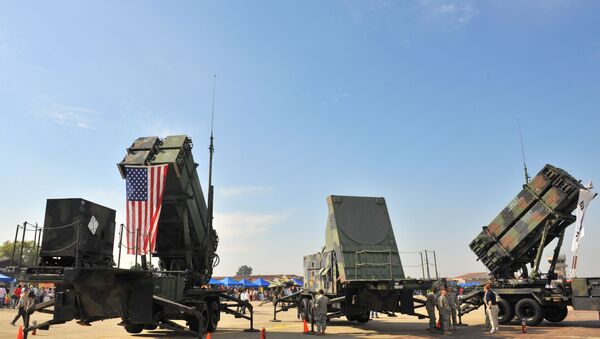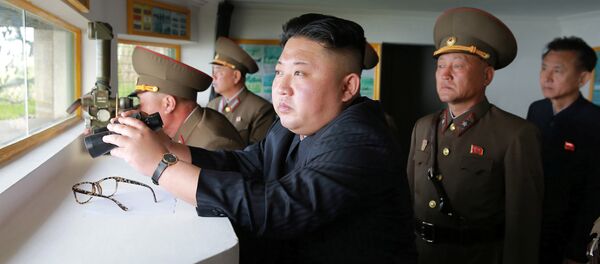"It is obvious that through the deployment of forward lines of their strategic defense to Northeast Asia, the United States is gradually enhancing its capabilities of conducting military operations against the countries of the region," Timonin said in an interview.
The diplomat specified that the deployment of a US Terminal High Altitude Area Defense (THAAD) system in South Korea would limit the possibilities of easing tensions in the region.
"With regard to about the dangerous consequences of the deployment of the US missile defense systems in South Korea, then it should be stressed that any attempt by the United States and its allies to flex their 'muscles' significantly narrows the possibility of de-escalating tensions around the Korean Peninsula and of searching for political and diplomatic settlement for all the Korea-related problems," the ambassador explained.
According to him, the launch of six-party talks on the basis of the Russia-China roadmap could be an alternative to strengthening sanctions against North Korea and military pressure.
"I am confident that a swift launch of the six-party negotiations process on the basis of the Russia-China three-stage roadmap … is a real alternative to increasing sanctions and military pressure on North Korea," Timonin said.
Seoul and Washington agreed to deploy the THAAD system in South Korea's Seongju County, following a series of Pyongyang’s nuclear and ballistic missile tests.
READ MORE: DPRK Media: North Korean Army Is the Only One that Terrifies the US
China, alongside Russia, has strongly opposed the deployment, warning that the THAAD system might undermine the security balance in the region and the credibility of South Korea.
On Business Cooperation in Region
Speaking further, the top diplomat noted that the implementation of trilateral Russia-South Korea-North Korea economic projects opened up "huge" opportunities for Korean resolution.
"For my part, I believe that the implementation of trilateral economic projects with participation of Russia, the Republic of Korea and the Democratic People's Republic of Korea opens up huge opportunities for Korean resolution," he said.
According to the ambassador, it is too early to speak of a possible resumption of a project to build a gas pipeline connecting Russia and South Korea via the North Korean territory.
READ MORE: Ambassador: Humanitarian Situation in N. Korea Deteriorating Due to UN Sanctions
At the same time, the official noted that Moscow-Seoul cooperation in the electrical energy sector could contribute to the consolidation of stability on the Korean peninsula.
"Development of cooperation in the sector of electrical energy, including in organizing the export of electrical energy from Russia to the Korean peninsula appears to be promising. This is difficult and large-scale work which requires many political and technical aspects to be taken into account. However, it is aimed for the future and its results could also contribute to consolidating stability on the Korean peninsula and the region as a whole, aside from economic profit," he said.
As far as businesses are concerned, Moscow is working to attract South Korean shipping companies to the development of the Northern Sea Route as part of its efforts aimed at Seoul's accession to the activities of the Arctic Council, Timonin said.
"We are actively working on the Republic of Korea's accession to cooperation as part of the Arctic Council, attracting South Korean shipping companies to the exploration of the Northern Sea Route and engaging South Korean businesses in [the development of] its infrastructure," Timonin said in an interview.
Russia has been stepping up its military, trade, and exploration activities in the Arctic region, building transport and energy production infrastructure, as well as installing military facilities and developing the Northern Sea Route linking Europe and Asia.



